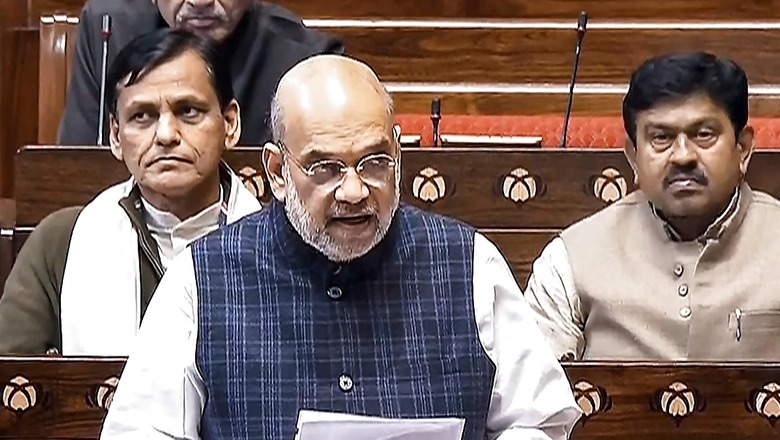
views
Union Home Minister Amit Shah said in Rajya Sabha on Monday that Article 370 gave rise to separatism and terrorism in Kashmir and suggested that its abolition had cleared the way for an end of terrorism in the valley.
Shah said a “new and developed Kashmir” free from violence is being built under Prime Minister Narendra Modi and blamed the country’s first prime minister Jawaharlal Nehru for the Kashmir problem.
The Jammu and Kashmir Reorganisation Act, arguably one of the most significant legislative decisions of the Narendra Modi government in August 2019, not only abrogated Article 370 and Article 35A, which granted special status to Jammu and Kashmir but also bifurcated it into two Union Territories of J&K and Ladakh.
Drop in Stone Pelting
With the rise of security forces in Kashmir and tough measures and action by central agencies such as the NIA, stone pelting incidents in the Valley have plummeted and terror incidents have witnessed a decline.
Addressing the Lok Sabha last week, Union Home Minister Amit Shah said that in 2010, there were 2,654 stone pelting incidents in Jammu and Kashmir while in 2023 there was not a single stone pelting incident.
He said that in 2010 there were 132 organized strikes, while in 2023 there was not even a single strike. In 2010, 112 civilians died in stone pelting, whereas in 2023, not even one person died. In 2010, 6,235 security personnel were injured in stone pelting, not even a single one was injured in 2023.
There was a decline of 70% in incidents of terrorism, 72% in deaths of civilians, and 59% decline in deaths of security force personnel in Jammu and Kashmir between 2004-2014 and 2014-2023 periods, according to Shah.
The worst incidents of stone-pelting took place in 2010, 2016 and 2019. According to the data of Ministry of Home Affairs (MHA), there were 618 incidents of stone pelting in the Kashmir Valley in Jan-July 2019. Meanwhile, during the same period, there were just 222 incidents in 2020 and 76 incidents in 2021.
At the height of protests in 2016, there were 2,653 stone-pelting cases after the killing of Burhan Wani, a commander of the terrorist organisation Hizbul Mujahideen.
One of the probable cases behind the drop is that the government decided to shift those accused of stone-pelting to jails in Uttar Pradesh.
How Normalcy Returned to Kashmir
Four years post abrogation of Article 370 in Kashmir, the valley has not only seen a flag hoisting ceremony freely and fearlessly at Srinagar’s Bakshi stadium on Independence Day, but the Kashmir capital also hosted working group meeting of G20 nations earlier this year.
Union Home Minister informed the Parliament that two crore tourists visited Kashmir post Article 370 abrogation and over 100 film shoots have taken place and three theatres have opened and another 18 are in the offing.
The terror incidents have reduced by 70 per cent during the Modi government as compared to ten years of the UPA government. There were 7,217 terrorist incidents between 2004 to 2014 under PM Manmohan Singh, which have now reduced to 2,197 incidents in ten years of the Modi regime, Amit Shah said, citing figures.
“The youth who used to carry stones earlier, the Modi government has helped them carry laptops now,” he added, noting that the people of Kashmir ignore those who talk of separatism and terrorism under the guise of 370 and instead want the focus to be on development issues.
The government has invested Rs 30,000 crore in hydroelectricity and is focusing on railway and other infrastructure.
After a gap of 30 years, Muharram processions in the Valley have taken place under the Modi government. Shah said 42,000 people have lost their lives due to terrorism in Jammu and Kashmir so far and the government’s focus was on ending the terror ecosystem.




















Comments
0 comment